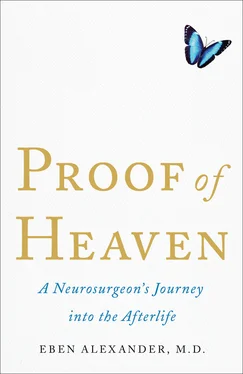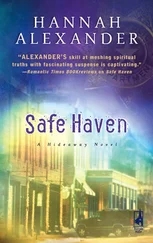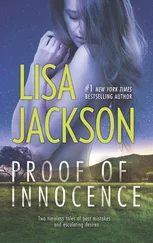Yet day by day, ever more of that “me” returned. Language. Memories. Recognition. A certain mischievous streak I’ve always been known for returned as well. And while they were pleased to see my sense of humor back, my two sisters weren’t always thrilled with how I chose to use it. Monday afternoon, Phyllis touched my forehead and I recoiled.
“Ouch,” I screamed. “That hurts!”
Then, after enjoying everybody’s horrified expressions, I said, “Just kidding.”
Everyone was surprised by the speed of my recovery—except for me. I—as of yet—had no real clue how close to death I had actually been. As, one by one, friends and family headed back to their lives, I wished them well and remained blissfully ignorant of the tragedy that had been so narrowly averted. I was so ebullient that one of the neurologists who evaluated me for rehab placement insisted that I was “too euphoric,” and that I was probably suffering from brain damage. This doctor, like me, was a regular bow-tie wearer, and I returned the favor of his diagnosis by telling my sisters, after he had left, that he was “strangely flat of affect for a bow-tie aficionado.”
Even then, I knew something that more and more of the people around me would come to accept as well. Doctors’ views or no doctors’ views, I wasn’t sick, or brain-damaged. I was completely well.
In fact—though at this point only I knew this—I was completely and truly “well” for the first time in my entire life.
“Truly well”—even if I did still have some work to do as far as the hardware side of things went. A few days after moving to outpatient rehab, I called Eben IV at school. He mentioned that he was working on a paper in one of his neuroscience courses. I volunteered to help but soon regretted doing so. It was much harder for me to focus on the subject than I had expected, and terminology I thought I had fully back suddenly refused to come to my mind. I realized with a shock just how far I still had to go.
But bit by bit that part came back, too. I’d wake up one day and find myself in possession of whole continents of scientific and medical knowledge that the day before I had been without. It was one of the strangest aspects of my experience: opening my eyes in the morning with even more of the nuts and bolts of a whole lifetime of education and experience at work again.
While my neuroscientist’s knowledge crept back slowly and timidly, my memories of what had happened during that week out of my body loomed in my memory with astonishing boldness and clarity. What had happened outside the earthly realm had everything to do with the wild happiness I’d awakened with, and the bliss that continued to stick with me. I was deliriously happy because I was back with the people I loved. But I was also happy because—to state the matter as plainly as I can—I understood for the first time who I really was, and what kind of a world we inhabit.
I was wildly—and naïvely—eager to share these experiences, especially with my fellow doctors. After all, what I’d undergone altered my long-held beliefs of what the brain is, what consciousness is, even what life itself means—and doesn’t mean. Who wouldn’t be anxious to hear of my discoveries?
Quite a few people, as it turned out. Most especially, people with medical degrees.
Make no mistake, my doctors were very happy for me. “That’s wonderful, Eben,” they would say, echoing my response to countless patients of my own who, in the past, had tried to tell me about otherworldly experiences they’d undergone during surgery. “You were very sick. Your brain was soaking in pus. We can’t believe you’re even here to talk about it. You know yourself what the brain can come up with when it’s that far gone.”
In short, they couldn’t wrap their minds around what I was so desperately trying to share.
But then, how could I blame them? After all, I certainly wouldn’t have understood it either— before .
Icame home on November 25, 2008, two days before Thanksgiving, to a home full of gratitude. Eben IV drove overnight to surprise me the following morning. The last time he’d been with me I’d been in full coma, and he was still processing the fact that I was alive at all. He was so excited that he got a speeding ticket coming through Nelson County just north of Lynchburg.
I’d been up for hours, sitting in my easy chair by the fire in our cozy wood-paneled study, just thinking about everything I’d been through. Eben walked through the door just after 6 A.M. I stood up and gave him a long hug. He was stunned. The last time he’d seen me on Skype in the hospital, I’d been barely able to form a sentence. Now—other than still being on the thin side and having an IV line in my arm—I had returned to my favorite role in life—being Eben and Bond’s dad.
Well, almost the same. Eben was aware of something else that was different about me, too. Later, Eben would say that when he first saw me that day, he was immediately taken with how “present” I was.
“You were so clear, so focused,” he said. “It was as if there was a kind of light shining within you.”
I wasted no time in sharing my thoughts.
“I am so eager to read all I can about this,” I told him. “It was all so real, Eben, almost too real to be real, if that makes any sense. I want to write about it for other neuroscientists. And I want to read up on NDEs and what other people have experienced. I can’t believe I never took any of it seriously, never listened to what my own patients told me. I was never curious enough to even look into any of the literature.”
Eben didn’t say anything, at first, but it was clear he was thinking about how to best advise his dad. He sat down across from me, and he urged me to see what should have been obvious.
“I believe you, Dad,” he said. “But think about it. If you want this to be of value to others, the last thing you should do is read what other people have said.”
“So what should I do?” I asked.
“Write it down. Write it all down—all your memories, as accurately as you can remember them. But don’t read any books or articles about other peoples’ near-death experiences, or physics, or cosmology. Not until you’ve written down what happened to you. Don’t talk to Mom or anyone else about what happened while you were in coma, either—at least to the degree that you can steer clear of it. You can do that all you want later, right? Think how you always used to tell me that observation comes first, then interpretation. If you want what happened to you to be scientifically valuable, you need to record it as purely and accurately as you can before you start making any comparisons with what has happened to others.”
It was, perhaps, the most sage advice anyone’s ever given me—and I followed it. Eben was also quite right that what I deeply wanted, more than anything else, was to use my experiences to, hopefully, help others. The more my scientific mind returned, the more clearly I saw how radically what I’d learned in decades of schooling and medical practice conflicted with what I’d experienced, the more I understood that the mind and the personality (as some would call it, our soul or spirit) continue to exist beyond the body. I had to tell my story to the world.
For the next six weeks or so, most days went the same. I’d wake up around 2 or 2:30 A.M., feeling so ecstatic and energized by simply being alive that I would bound out of bed. I’d light a fire in the den, sit down in my old leather chair, and write. I tried to recall every detail of my journeys in and out of the Core, and what I had felt as I learned its many life-changing lessons.
Читать дальше












